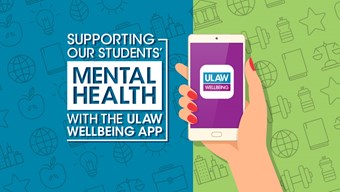It goes without saying that getting a training contract is no easy ride. Just to get to a final stage interview in the first place, you’ve defied the statistical odds: the countless applications, the psychometric testing, the video interviews, and assessment centres. So, when you are finally in front of the two partners responsible for that all-important “you’re hired”, how do you impress? Verdict caught up with Emma Clark, Corporate Counsel and a member of Linklaters’ trainee recruitment panel, to find out.
By Editorial Team. Published 25 April 2022.
Moving back from Linklaters’ Dubai office in 2016, Clark has been an experienced member of the London trainee recruitment panel for the past four years now. Interviewing two to three candidates a week at the peak of interview season, for both graduate and lateral hires, Clark sheds light on what it’s like to be on the other side of the table.
A VIRTUAL INTERVIEWING VETERAN
Having done many on-screen interviews whilst working at Linklaters’ Middle Eastern offices, Clark is somewhat of a virtual interviewing veteran. Despite this, she recognises how it is still “much harder to build a rapport with interviewers over webcam”. When conducting a virtual interview, this is therefore something she is particularly conscious of. Clark would usually start any interview by introducing herself and telling the candidate a bit of background information about how she came to be at Linklaters. As someone who hasn’t had the typical Linklaters career, her introductory “blurb” is a chance to highlight such, but more importantly, to put the candidate at ease. “It gives the candidate time to settle their nerves and have a bit of time for a breather,” she tells Verdict.
As an experienced virtual interviewer, Clark is also all too familiar with technical hitches. “These things happen, and it isn’t a truly terrible thing” Clark tells Verdict. In her experience, it happens much more than people think. Worst case scenario you have to switch off the video and just conduct a phone interview instead. “It’s really not the end of the world,” Clark assures candidates.
PITCHING YOURSELF RIGHT
Perhaps one of the hardest things to gauge in a partner interview is how to pitch yourself; do you discuss your niche interests, or present yourself as a jack of all trades? When asked about striking the right balance here, Clark explained how the best people she interviews are “really engaged in a subject matter or area of law and have interesting things to say about it”. Although, if you mention an interest in a specific area within your application form, expect to be pressed on it. On the whole however, Clark’s advice is to not overthink – “it’s important that our candidates remember that we are not judging them on every little thing”, she tells Verdict.
EXCELLING IN TECHNICAL TASKS
Technical tasks can often be one of the most daunting parts of an interview, largely because they are unseen. However, “the partners are not looking to catch you out”, Clark emphasises. If a candidate has clearly got the wrong end of the stick, they will intervene to point you in the right direction. Usually, the candidate realises their mistake and gets back on track.
Within this, the answer you arrive at is always of secondary importance. What is really being tested is your thought process and ability to make well justified arguments. For law students, schooled in rigour and precision, it’s easy to get caught up in the small details. However, often it’s a case of stepping back, and being able to look at the bigger picture. Asking for clarification is okay, too. As Clark explained to Verdict, “candidates should not be afraid to ask for clarification at any time if they need it”. Indeed, some of the best candidates she has interviewed have done so.
DEALING WITH DIFFICULT QUESTIONS
While the question, “what other firms have you applied to?” might feel like a curve-ball, it shouldn’t be over-analysed. It simply gives you the chance for you to explain the thought process behind your applications and show that a coherent approach has been taken. It’s also fine to say you have applied to a competitor – in fact it indicates a targeted approach towards firms with a similar position within the market. Clark told Verdict how “candidates tend to focus on Linklaters’ international reach, but my advice here would be to just be open about who you have applied for”. All firms know that candidates are making multiple applications – after all, it is no surprise that aspiring lawyers would aim to be risk averse.
TURNING THE TABLES
As the interview draws to a close, candidates nearly always get the opportunity to turn the tables and put their questions to the interviewers. As the last thing you say, it is important to make a lasting impression. Verdict asked Clark what really impresses her in interviews here. She explained, “the most impressive candidates will listen to the introduction I gave at the beginning and ask me informed questions off the back of that”. For example, given her background, some of the most insightful questions have focused on her experience abroad. This includes questions such as “when would you say is the right time to make the leap to an international office during your career?” When probed as to the kinds of questions that would not impress here, Clark said, “I think it’s important to gauge your interviewer before you ask them any personal questions”.
This article was first published in our Verdict magazine - Read Employability Special, the issue #6 of Verdict magazine.



